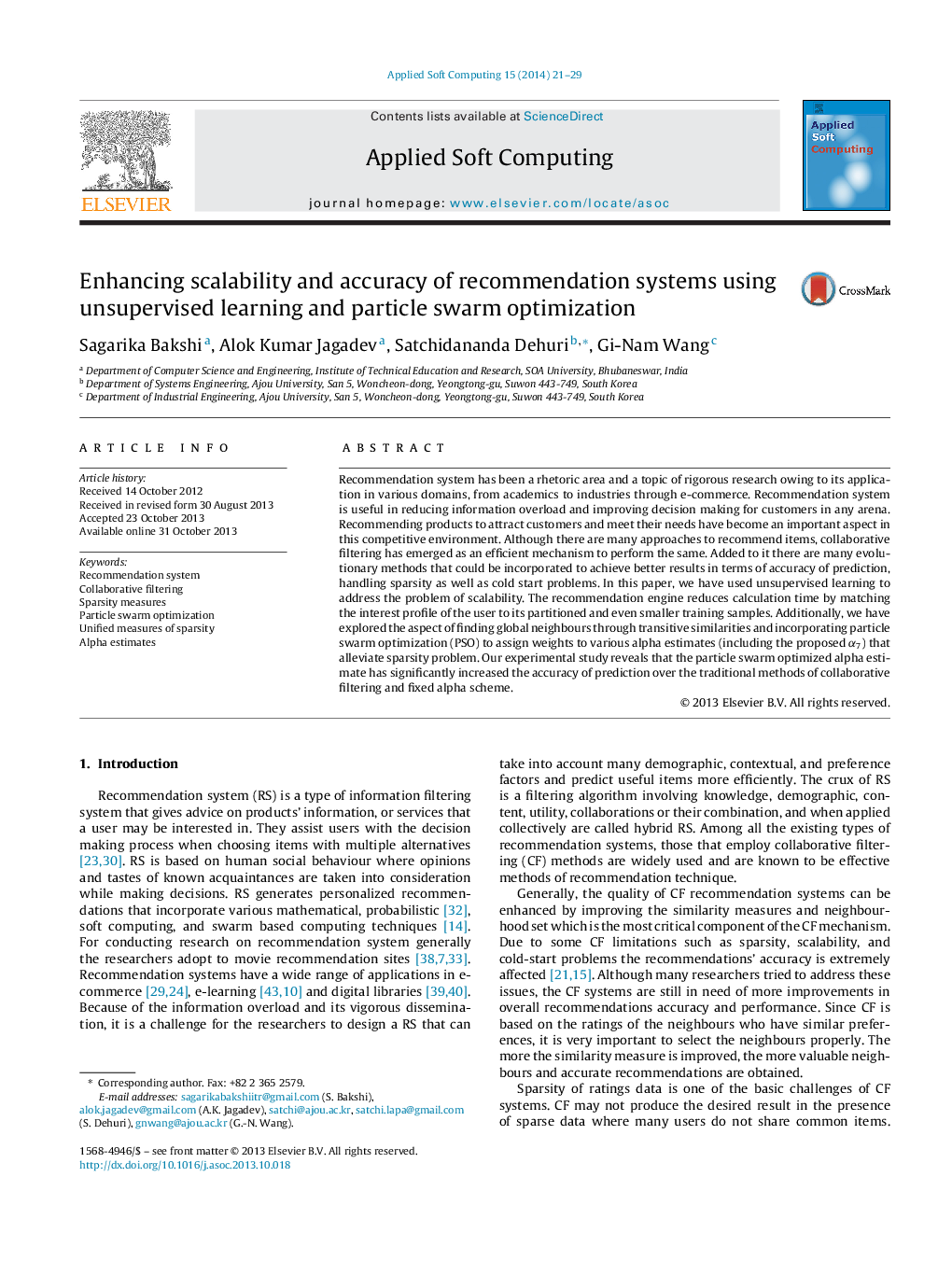| کد مقاله | کد نشریه | سال انتشار | مقاله انگلیسی | نسخه تمام متن |
|---|---|---|---|---|
| 495496 | 862828 | 2014 | 9 صفحه PDF | دانلود رایگان |
• With a goal to enhance the scalability and accuracy of recommendation systems (RSs), we have introduced a new model which is a combination of both unsupervised learning and supervised learning.
• Through unsupervised learning we are selecting a matched partition for training set (mostly a small subset) for addressing the issues of scalability problem in RS.
• Additionally, we have introduced a more general framework of PSO optimized α-system which can solve the problem of sparsity and hence helps to increase the accuracy of the overall system.
Recommendation system has been a rhetoric area and a topic of rigorous research owing to its application in various domains, from academics to industries through e-commerce. Recommendation system is useful in reducing information overload and improving decision making for customers in any arena. Recommending products to attract customers and meet their needs have become an important aspect in this competitive environment. Although there are many approaches to recommend items, collaborative filtering has emerged as an efficient mechanism to perform the same. Added to it there are many evolutionary methods that could be incorporated to achieve better results in terms of accuracy of prediction, handling sparsity as well as cold start problems. In this paper, we have used unsupervised learning to address the problem of scalability. The recommendation engine reduces calculation time by matching the interest profile of the user to its partitioned and even smaller training samples. Additionally, we have explored the aspect of finding global neighbours through transitive similarities and incorporating particle swarm optimization (PSO) to assign weights to various alpha estimates (including the proposed α7) that alleviate sparsity problem. Our experimental study reveals that the particle swarm optimized alpha estimate has significantly increased the accuracy of prediction over the traditional methods of collaborative filtering and fixed alpha scheme.
Figure optionsDownload as PowerPoint slide
Journal: Applied Soft Computing - Volume 15, February 2014, Pages 21–29
